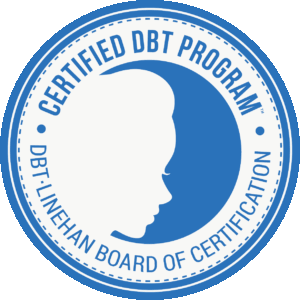In the serene township of Voorhees, New Jersey, a profound approach to healing trauma is quietly transforming lives. With its leafy neighborhoods and tranquil ambiance, Voorhees provides an ideal backdrop for those seeking solace and recovery from the lingering effects of trauma. At the heart of this healing journey lies a variety of therapy techniques tailored to address the complex needs of individuals who have experienced profound psychological wounds.
Understanding Trauma
Trauma, in its many forms, can deeply impact a person’s mental and emotional well-being. Whether stemming from childhood experiences, accidents, violence, or other life-altering events, trauma can leave lasting imprints that affect how individuals perceive and interact with the world around them. In Voorhees, therapists recognize the multifaceted nature of trauma and approach each case with sensitivity and expertise.
In addressing trauma, therapists in Voorhees emphasize the importance of creating a safe and supportive therapeutic environment where clients can explore their experiences without fear of judgment or re-traumatization. Through compassionate listening and validation, therapists help clients make sense of their feelings and reactions, gradually integrating fragmented aspects of their experience into a coherent narrative.
Holistic Therapeutic Approaches
Healing the mind in Voorhees involves a holistic array of therapeutic approaches designed to foster resilience and promote recovery. Central to these techniques is trauma-focused therapy, which aims to help individuals process traumatic memories and develop coping strategies. Cognitive-behavioral therapy (CBT) is often employed to address negative thought patterns and behaviors, empowering individuals to regain a sense of control over their lives.

Trauma-Focused Therapy
Central to holistic trauma therapy in Voorhees is trauma-focused therapy, which encompasses several evidence-based techniques tailored to the individual’s needs. This approach helps clients process traumatic memories in a safe and supportive environment. Through techniques like narrative therapy, clients are encouraged to explore and reframe their traumatic experiences, gradually integrating these memories into their personal narratives in a way that promotes healing and resilience.
Cognitive-Behavioral Therapy (CBT)
CBT is another cornerstone of holistic trauma therapy in Voorhees, focusing on identifying and modifying negative thought patterns and behaviors that contribute to distress. By teaching clients practical skills and strategies to challenge and change unhelpful thoughts, CBT empowers individuals to regain a sense of control over their reactions to trauma triggers. This therapeutic approach not only addresses current symptoms but also equips clients with lifelong tools for managing stress and enhancing their overall well-being.
Expressive Arts Therapy
In Voorhees, expressive arts therapy forms an integral part of holistic trauma treatment, offering a creative outlet for emotional expression and exploration. Through art, music, movement, and drama, individuals can communicate and process complex emotions that may be difficult to articulate verbally. Expressive arts therapy encourages clients to reconnect with their innate creativity, fostering self-discovery and promoting healing through non-verbal means.
Body-Oriented Approaches
Understanding the interconnectedness of mind and body, therapists in Voorhees incorporate body-oriented approaches such as somatic experiencing and yoga therapy into trauma treatment plans. These approaches focus on restoring a sense of safety and grounding in the body, which can be disrupted by trauma. Through gentle movement, mindfulness practices, and breathwork, individuals learn to regulate their nervous system responses, release physical tension, and cultivate a deeper awareness of bodily sensations and signals.
Nutritional and Wellness Support
Holistic trauma therapy in Voorhees recognizes the importance of holistic wellness in healing from trauma. Therapists may collaborate with nutritionists and wellness experts to address the impact of trauma on physical health and promote overall well-being. Emphasizing the connection between diet, exercise, sleep, and mental health, clients are encouraged to adopt healthy lifestyle practices that support their recovery journey.
Eye Movement Desensitization and Reprocessing (EMDR)
EMDR has emerged as a particularly effective tool in trauma therapy in Voorhees. This innovative approach helps individuals reprocess traumatic memories by focusing on bilateral stimulation, such as eye movements or taps. By guiding clients through these targeted movements while recalling distressing memories, therapists help facilitate adaptive processing, leading to a reduction in trauma-related symptoms and emotional distress.
The phases of EMDR typically include:
History Taking and Treatment Planning
The therapist gathers information about the client’s history and identifies specific memories or experiences to target during EMDR sessions. A treatment plan is then developed based on the client’s needs and goals.
Preparation
Before reprocessing traumatic memories, the therapist works with the client to establish a sense of safety, develop coping skills, and ensure readiness for the emotional work ahead.
Assessment
The client identifies a specific memory or target to focus on during the EMDR session. This may be a distressing event from the past that continues to impact their present emotional state.
Desensitization
During this phase, the client holds the traumatic memory in mind while simultaneously engaging in bilateral stimulation as directed by the therapist. This process allows the client to process the memory without becoming overwhelmed by the associated emotions.
Installation
Positive beliefs and emotions are identified and reinforced to replace negative beliefs associated with the traumatic memory. This phase aims to promote resilience and a sense of empowerment.
Body Scan
The therapist assists the client in noticing any residual tension or discomfort in the body related to the processed memory. Techniques such as mindfulness may be used to help the client release any remaining distress.
Closure
At the end of each session, the therapist ensures that the client feels stable and grounded before concluding. Techniques for self-soothing and relaxation may be practiced to maintain emotional balance outside of therapy.
Reevaluation
Subsequent sessions may involve revisiting previous targets to assess progress and address any remaining distress or related memories.
Mindfulness and Meditation
Complementing traditional therapeutic techniques, mindfulness and meditation practices play a crucial role in trauma recovery in Voorhees. These practices encourage individuals to cultivate present-moment awareness and develop a compassionate understanding of their experiences. Through guided meditation sessions and mindfulness exercises, clients learn to observe their thoughts and feelings without judgment, fostering a sense of inner peace and resilience.
Community Support and Connection
Healing from trauma is not a journey that individuals undertake alone. In Voorhees, community support and connection are integral to the healing process. Group therapy sessions provide a safe space for individuals to share their experiences, gain perspective from others facing similar challenges, and build a sense of belonging. Peer support networks further strengthen this communal fabric, offering ongoing encouragement and understanding.
A Commitment to Empowerment and Growth
Above all, trauma therapy in Voorhees is guided by a commitment to empowerment and growth. Therapists work collaboratively with clients to set achievable goals and milestones, celebrating each step forward in the healing process. Through personalized treatment plans and compassionate care, individuals are supported in reclaiming their lives and rediscovering their inherent resilience.
Conclusion
Exploring trauma therapy techniques reveals a profound journey towards healing the mind. Whether through Dialectical Behavior Therapy (DBT), Eye Movement Desensitization and Reprocessing (EMDR), or Cognitive Behavioral Therapy (CBT), each method offers unique pathways for individuals to process and overcome trauma. By addressing underlying issues and empowering patients with coping strategies, these therapies foster resilience and promote emotional well-being.
For further information on trauma therapy techniques or to begin your healing journey with us at DBT of South Jersey, please don’t hesitate to reach out. Located in Voorhees, NJ, our dedicated team is committed to providing compassionate care tailored to your needs. Contact us at 1-856-625-6550 to schedule an appointment or learn more about our services. Your path to healing starts here.




